Marcelo A. Falappa
An Argumentation-Based Framework to Address the Attribution Problem in Cyber-Warfare
Apr 27, 2014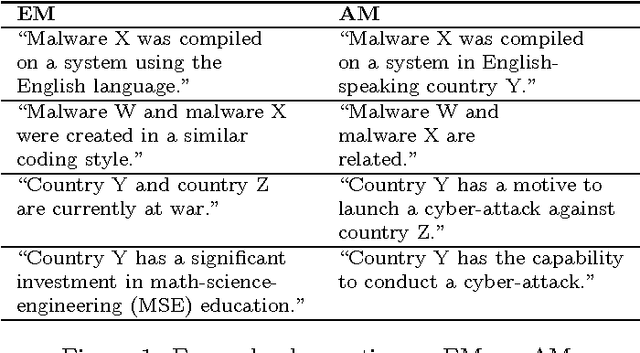
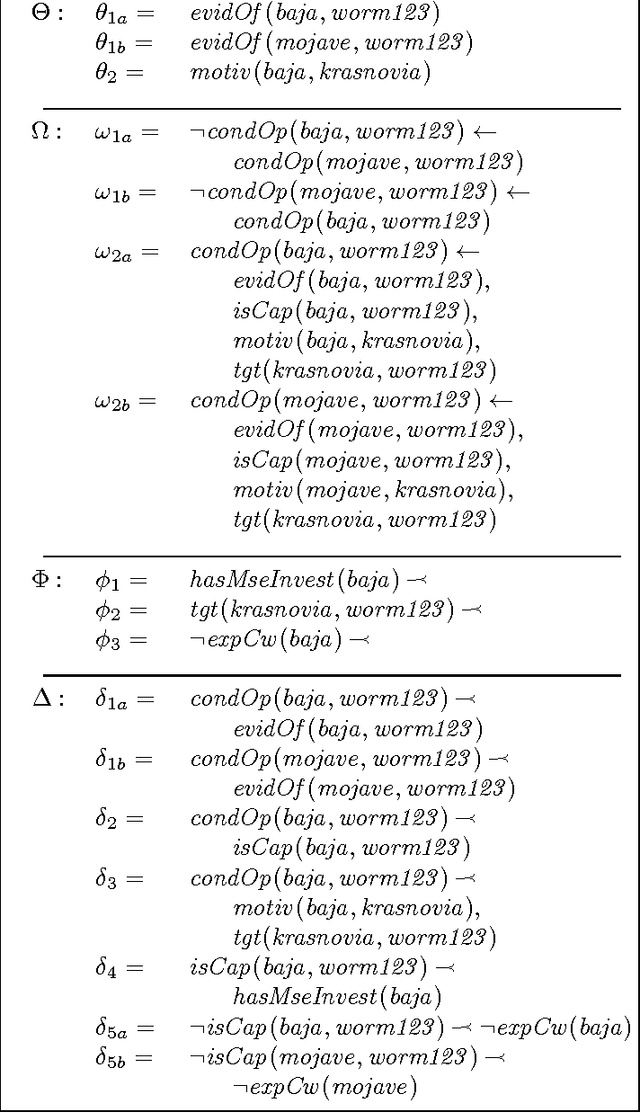
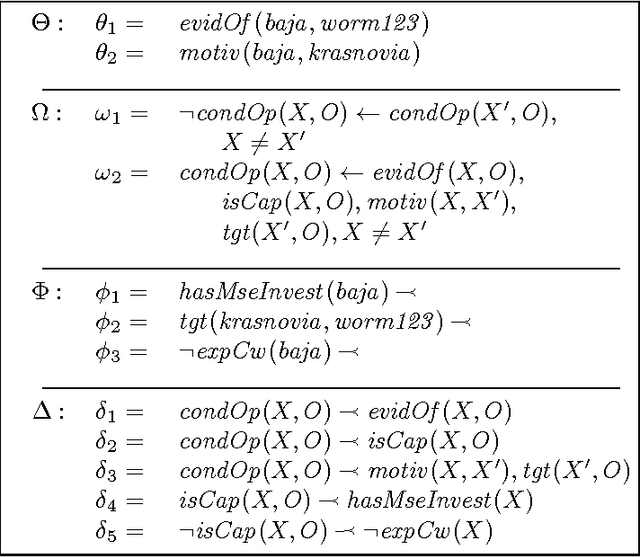
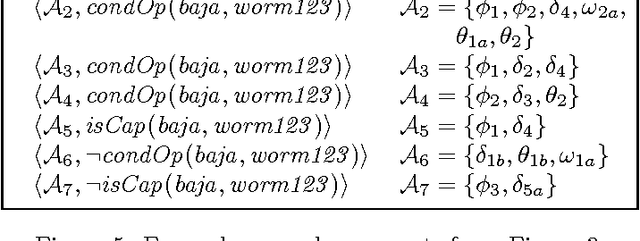
Abstract:Attributing a cyber-operation through the use of multiple pieces of technical evidence (i.e., malware reverse-engineering and source tracking) and conventional intelligence sources (i.e., human or signals intelligence) is a difficult problem not only due to the effort required to obtain evidence, but the ease with which an adversary can plant false evidence. In this paper, we introduce a formal reasoning system called the InCA (Intelligent Cyber Attribution) framework that is designed to aid an analyst in the attribution of a cyber-operation even when the available information is conflicting and/or uncertain. Our approach combines argumentation-based reasoning, logic programming, and probabilistic models to not only attribute an operation but also explain to the analyst why the system reaches its conclusions.
Belief Revision in Structured Probabilistic Argumentation
Jan 07, 2014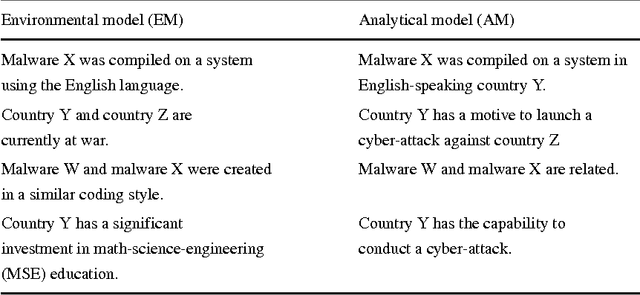



Abstract:In real-world applications, knowledge bases consisting of all the information at hand for a specific domain, along with the current state of affairs, are bound to contain contradictory data coming from different sources, as well as data with varying degrees of uncertainty attached. Likewise, an important aspect of the effort associated with maintaining knowledge bases is deciding what information is no longer useful; pieces of information (such as intelligence reports) may be outdated, may come from sources that have recently been discovered to be of low quality, or abundant evidence may be available that contradicts them. In this paper, we propose a probabilistic structured argumentation framework that arises from the extension of Presumptive Defeasible Logic Programming (PreDeLP) with probabilistic models, and argue that this formalism is capable of addressing the basic issues of handling contradictory and uncertain data. Then, to address the last issue, we focus on the study of non-prioritized belief revision operations over probabilistic PreDeLP programs. We propose a set of rationality postulates -- based on well-known ones developed for classical knowledge bases -- that characterize how such operations should behave, and study a class of operators along with theoretical relationships with the proposed postulates, including a representation theorem stating the equivalence between this class and the class of operators characterized by the postulates.
Dynamics of Knowledge in DeLP through Argument Theory Change
Nov 29, 2011Abstract:This article is devoted to the study of methods to change defeasible logic programs (de.l.p.s) which are the knowledge bases used by the Defeasible Logic Programming (DeLP) interpreter. DeLP is an argumentation formalism that allows to reason over potentially inconsistent de.l.p.s. Argument Theory Change (ATC) studies certain aspects of belief revision in order to make them suitable for abstract argumentation systems. In this article, abstract arguments are rendered concrete by using the particular rule-based defeasible logic adopted by DeLP. The objective of our proposal is to define prioritized argument revision operators \`a la ATC for de.l.p.s, in such a way that the newly inserted argument ends up undefeated after the revision, thus warranting its conclusion. In order to ensure this warrant, the de.l.p. has to be changed in concordance with a minimal change principle. To this end, we discuss different minimal change criteria that could be adopted. Finally, an algorithm is presented, implementing the argument revision operations.
 Add to Chrome
Add to Chrome Add to Firefox
Add to Firefox Add to Edge
Add to Edge